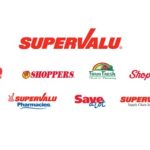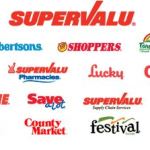
Nearly five weeks after selling off several supermarket chains, a slimmed-down Supervalu is ready to reveal plans for its remaining stores. Those changes include lower prices, more fresh selection, and a system that allows each chain to make more of its own decisions about what its customers want. And one chain has decided that what its customers want, is to not have any idea what’s on sale each week.
More on that in a bit. But first, some background. Until last month, Supervalu was one of the largest supermarket chains in the country. Then it sold Albertsons, Acme, Jewel, Shaw’s and Star Market (read: “Supervalu Sells Albertsons, Acme, Jewel-Osco, Shaw’s, Star Market: So What Does it Mean For You?”). That left Supervalu with a wholesale grocery distribution business, and a handful of much smaller regional grocery chains: Cub Foods in Minnesota’s Twin Cities, Shop ‘n Save in St. Louis, Farm Fresh in Virginia, Shoppers Food in the Washington, DC area and Hornbacher’s in Fargo, North Dakota, plus the Save-a-Lot discount grocery chain.
The company also got a new CEO, to help Supervalu get a fresh start. Sam Duncan made his first public comments yesterday about his company’s new direction. And his plans, at first, may seem contradictory – he’s instituting some across-the-board changes at all of the company’s chains, yet he’s letting each chain make more of their own decisions. He’s pledging to lower prices, yet he’s also investing in higher-quality products.
So if you shop at any of the Supervalu-owned stores, one of the first things you might notice under the new leadership is lower prices. “We need to make sure that we are priced right on the top 50 items in each of our markets,” Duncan told investors. “Our pricing will be restructured over the next nine months, after which we will continue to review categories regularly and make adjustments as needed.”
Next, make way for more meat and produce. As he visited stores in each chain recently, Duncan apparently pulled out the tape measure. “We need to expand by as much as 20 feet or more in our produce department,” he said. And he singled out one chain that had “no more than 36 feet of fresh meat case. We should have a minimum of 52 feet.” Perishables, he said, “is our biggest opportunity.”
Aside from improving prices and perishables across the board, Duncan plans to let each chain have more autonomy. “They are the ones closest to the customer and they know their markets best,” he said. “Ads will now be written locally and catered to each individual market.” Speaking from Supervalu’s home base, he added that “there is no way anybody here in Minneapolis can tell somebody at Farm Fresh for example, in Virginia, the type of ad items they need to run in their ads for their customers. That just won’t work.”
And Farm Fresh management has apparently taken that directive to heart. They’ve completely revamped their latest weekly ad. What was once a long list of sale items is now a mere five pages. Calling it an effort to “help simplify your shopping experience,” Farm Fresh said the new, shorter ad format focuses on the best sale items, but “you will still find hundreds of SALE tags throughout our stores,” as well as lower prices on more than 2,000 items.
It’s not the first time a store has discussed slimming down and even doing away with weekly circulars (read: “The End of Supermarket Circulars?”). But others’ plans involve replacing paper circulars with online sales ads – not doing away with them altogether.
Many Farm Fresh customers were unimpressed, and even angry. And if you’re the organized type, can you blame them? Imagine trying to plan a shopping trip and gather your coupons, when you don’t even know what’s on sale. “I don’t have time to wander the store and see what is on sale,” one customer griped on the store’s Facebook page. “Sales ads are supposed to entice the customer into the store,” another wrote, “not send them on a wild goose chase looking for hang tags.” Some commenters even said shoppers were staying away from the stores yesterday, the first day of the new ad, which would normally be a busy day. “My local Farm Fresh was empty today and the cashiers were just standing around doing nothing,” one commenter wrote. “Our Farm Fresh was empty this morning as well,” another chimed in, “and anyone who was trying to coupon was ticked off.”
Farm Fresh representatives who wrote back on Facebook gave the expected response, saying they’d take everyone’s comments into consideration. But they may have tipped their hand with one plea in particular: “The changes to our ad took time to implement, and any further changes will require more time. Please bear with us.”
Call it the first test of Supervalu’s new decentralized management approach. If the situation in Virginia doesn’t improve soon, well, maybe Minneapolis telling Farm Fresh what to do wasn’t such a bad idea after all.











